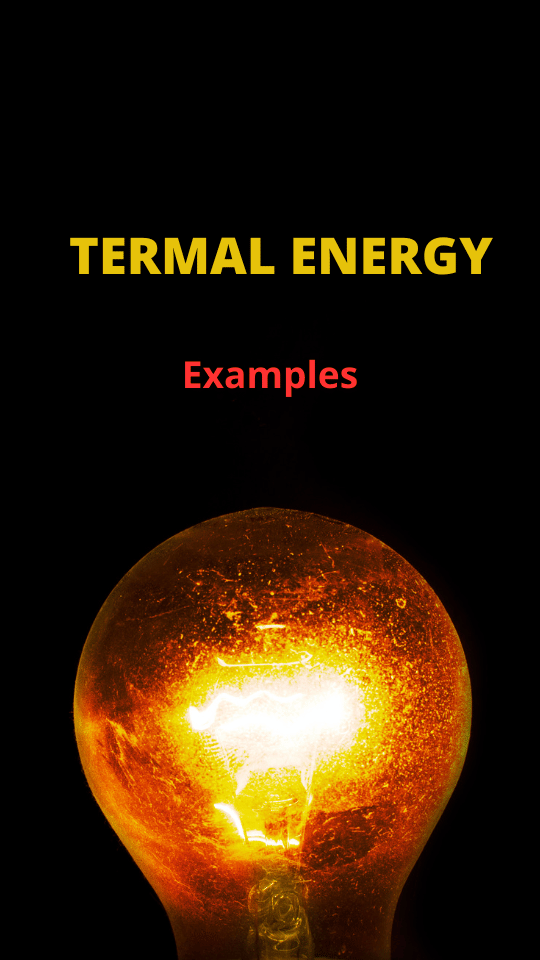Thermal energy is the internal energy of a system related to the kinetic energy of its atoms and molecules. It represents the total energy within an object or substance arising from the motion of its particles.
The thermal energy (Q) can be calculated using the formula:
Q=m⋅c⋅ΔT
Where:
- Q is the thermal energy,
- m is the mass of the substance,
- c is the specific heat capacity of the substance,
- ΔT is the change in temperature.
Examples
1. Heating Water
If you heat 1 kg of water (m=1 kg) from 20∘C to 80∘C (ΔT=60∘C) using water’s specific heat capacity (c=4,186 J/kg∘C), the thermal energy gained would be
Q=1 kg×4,186 J/kg∘C×60∘C=251,160 J.
2. Melting Ice:
If you melt 0.5 kg of ice (m=0.5 kg) at 0∘C using the heat of fusion of ice (c=334,000 J/kg), the thermal energy required would be Q=0.5 kg×334,000 J/kg=167,000 J.
3. Heating a Metal Rod:
Heating a 2 kg metal rod (m=2 kg) from 25∘C to 150∘C (ΔT=125∘C) with a specific heat capacity of (c=450 J/kg∘C), the thermal energy gained would be Q=2 kg×450 J/kg∘C×125∘C=112,500 J.
4. Cooking with a Stove:
If you use 1 kg of cooking oil (m=1 kg) with a specific heat capacity of (c=2,000 J/kg∘C) to increase its temperature by 50∘C (ΔT=50∘C), the thermal energy gained would be Q=1 kg×2,000 J/kg∘C×50∘C=100,000 J.
5. Cooling a Drink:
Cooling 0.3 kg of a soft drink (m=0.3 kg) from 25∘C to 5∘C (ΔT=−20∘C) using the specific heat capacity of water (c=4,186 J/kg∘C), the thermal energy lost would be
Q=0.3 kg×4,186 J/kg∘C×(−20)∘C=−251,160 J.
6. Boiling Water:
If you boil 1.5 kg of water (m=1.5 kg) at 100∘C using water’s specific heat capacity, the thermal energy needed would be Q=1.5 kg×4,186 J/kg∘C×100∘C= 627,900 J.
7. Heating a Room with a Heater:
If a heater produces 5,000 J of thermal energy per second (Q/Δt=5,000 W) for 2 hours (Δt=2 h), the total thermal energy produced would be
Q=5,000 W×2 h×3,600 s/h=18,000,000 J.
8. Warming Up a Car Engine:
Warming up a car engine with a mass of 300 kg (m=300 kg) from 0∘C to 40∘C (ΔT=40∘C) using the specific heat capacity of iron (c=450 J/kg∘C), the thermal energy gained would be Q=300 kg×450 J/kg∘C×40∘C=5,400,000 J.
9. Radiant Heat from the Sun:
Suppose an area of 1 square meter receives 500 J of thermal energy per second from the sun (Q/Δt=500 W). In 1 hour (Δt=1 h), the total thermal energy received would be Q=500 W×1 h×3,600 s/h=1,800,000 J.
10. Cooling Food in a Refrigerator:
If a refrigerator absorbs 200 J of thermal energy per second (Q/Δt=200 W) for 5 hours (Δt=5 h), the total thermal energy absorbed would be Q=200 W×5 h×3,600 s/h=3,600,000 J.

